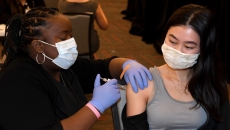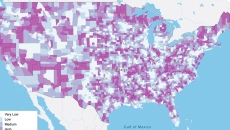Analytics
Artificial Intelligent
Theft and fraud are becoming major patient safety issues – and experts say the patchwork nationwide approach to COVID-19 vaccine distribution could be making matters worse.
To develop the predictive tool, Northwell researchers used EHR data and demographic information to help triage those who need the most interventions to reduce mortality.
The United States needs a unified and timely quality measurement and reporting system, said the organization – noting that the current model is both inconsistent and largely retrospective.
Healthcare IT News asked chief information officers from around the country about which technologies have proved most instrumental in the vaccines' early days – and what improvements might be helpful moving forward.
Johns Hopkins, Duke, Meharry Medical College, Harvard Pilgrim and others will gain access to HCA's data registry to help boost patient outcomes and improve public health.
Although the EHR market has made notable changes for the better, there's still ample opportunity for vendors and providers alike to work toward more robust data exchange, a new report shows.
By using patient age, sex and daily clinical state, the machine learning model also predicts the probability of in-hospital mortality.
The use of realistic health record information that mimics lifelong medical histories can enable more innovative algorithms for disease modeling.
The update to its COVID Community Vulnerability Map uses artificial intelligence to help guide vaccine distribution to patient populations most at risk.
Although it was challenging, the virtual validation brought about opportunities for other hospital departments to participate and learn in the process.








